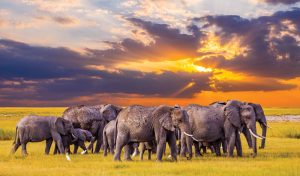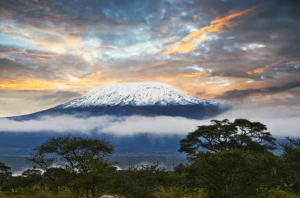Lion Population in Mikumi National Park: A Detailed Overview
Mikumi National Park, located in Tanzania, is home to a diverse array of wildlife, including a significant population of lions. These majestic creatures play a crucial role in maintaining the park’s ecosystem balance and attract visitors from around the world eager to catch a glimpse of them in their natural habitat.
The Current State of Lion Population in Mikumi National Park
The lion population in Mikumi National Park is currently estimated to be around 200 individuals. This number has remained relatively stable in recent years, thanks to conservation efforts aimed at protecting these iconic animals. Sunset Africa Safari, a leading tour operator in the region, offers guided safaris that provide visitors with the opportunity to observe these magnificent creatures up close.
Lions are apex predators, meaning they play a vital role in controlling the population of herbivores in the park. By preying on species such as zebras and wildebeests, lions help prevent overgrazing and maintain the health of the ecosystem. Additionally, lions are a major draw for tourists, contributing to the economic sustainability of the park and supporting local communities that rely on tourism for their livelihoods.
Factors Impacting the Lion Population in Mikumi National Park
Despite the relatively stable population of lions in Mikumi National Park, there are several factors that continue to pose threats to their survival. One of the primary challenges facing these animals is human-wildlife conflict. As the human population in the surrounding areas grows, there is increased pressure on the land, leading to habitat destruction and fragmentation. This puts lions at risk of being displaced from their natural range and coming into conflict with humans.
Another significant threat to the lion population in Mikumi National Park is poaching. Although the park is protected by law enforcement agencies, illegal hunting still occurs, posing a direct threat to lions and other wildlife. Poachers target lions for their skins, bones, and other body parts, which are in demand for traditional medicine and as status symbols in some cultures.
Climate change is another factor that could potentially impact the lion population in Mikumi National Park. As temperatures rise and weather patterns become more unpredictable, the availability of food and water sources for lions may be affected. This could lead to increased competition between lions and other predators, as well as reduced reproductive success rates.
In conclusion, the lion population in Mikumi National Park is currently stable, thanks to conservation efforts and responsible tourism practices. However, ongoing threats such as human-wildlife conflict, poaching, and climate change continue to pose challenges to the long-term survival of these iconic animals. By supporting sustainable tourism initiatives and conservation programs, we can help ensure that future generations will have the opportunity to witness the beauty and majesty of lions in the wild. To book a safari with Sunset Africa Safari and experience the wonders of Mikumi National Park, contact info@sunsetafricasafari.com.



